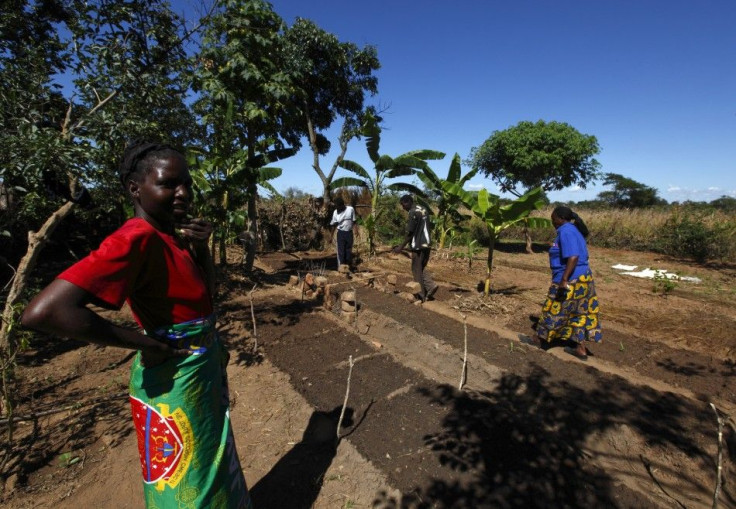Africa Must Increase Food Production To Keep Up With Economic Growth: Report

A report released Tuesday by the United Nations Development Program (UNDP) argues that Africa must increase its agricultural productivity in order to keep up with promising rates of economic growth.
Africa has seen economic progress in recent years, reports the World Bank. In 2011, GDP in sub-Saharan Africa expanded by an encouraging 5 percent across the region. A growth rate of 5.5 percent is expected for 2012, and exports are on the rise. Furthermore, the UNDP notes that sub-Saharan Africa has an abundance of natural agricultural resources.
But Tuesday's report shows that economic growth alone has not been enough to solve hunger problems throughout the continent.
Famine conditions wrought havoc in and around the Horn of Africa in 2010 and 2011; tens of thousands died, and widespread hunger remains a serious problem. Further west across the semi-arid belt of the Sahel, drought conditions are worsening already-critical food shortages. Throughout the entire continent, reports the UN, one in four Africans are undernourished -- that's almost 218 million people. Children under five are faring especially poorly, with about 40 percent undernourished.
The causes of this problem are varied. Climatological conditions have been a big concern of late, explained Ethiopian Prime Minister Meles Zenawi to the UN.
Africa is most susceptible to variations in agro-climate conditions, he said. What climate change does is exacerbate that problem. Large parts of Africa are expected to be drier than they already are. And the rest of the continent, the variability in weather conditions is expected to increase dramatically. And so it will exacerbate the problems of food security in the continent.
Other obstacles to building sustainable farming practices include corrupt governments, deteriorating rural infrastructure, a lack of agricultural education, and gender inequalities that dampen families' productivity.
With problems as diverse as these, said UNDP administrator Helen Clark, the solution must be comprehensive.
It's not any one thing, she explained. What if you grow a whole lot more food, but then you can't store it and get it to market? The extra food isn't going to feed anybody extra. So we need to be looking at the whole chain of production, supply, and distribution here. We need to be looking at the empowerment of the women farmers. We need to be looking at the level of resilience communities have, to what are increasingly frequent and more severe climate events.
The UNDP's proposed solution involves a number of initiatives. Roads should be repaired, health care should be made available, social justice should be advanced, and new farming techniques should be taught. Human development can advance the fight against hunger, and vice versa.
Food security, economic growth and human development have the potential to form a virtuous cycle of mutually reinforcing development, explains the report.
But any progress is likely to be complicated by a number of external and internal factors. Volatile markets, population booms and ineffective policies all threaten to exacerbate food insecurity.
Breaking with the past, standing up to the vested interests of the privileged few and building institutions that rebalance power relations at all levels of society will require courageous citizens and dedicated leaders, said the report.
Taking these steps is all the more pressing as new threats to the sustainability of sub-Saharan Africa's food systems have emerged. Demographic change, environmental pressure, and global and local climate change are profoundly reconfiguring the region's development options.
In this uncertain environment, the report points to countries that have already made remarkable achievements. Ghana, for instance, has cut hunger in half by changing its farming practices. Malawi has made admirable use of a subsidy program to turn a food deficit into a significant surplus. UNDP officials hope that more countries can mirror these successes over the next several years.
The challenge is large, the time frame is tight, and the investment required is significant, but the potential gains for human development in the region are immense, said the report.
© Copyright IBTimes 2024. All rights reserved.












